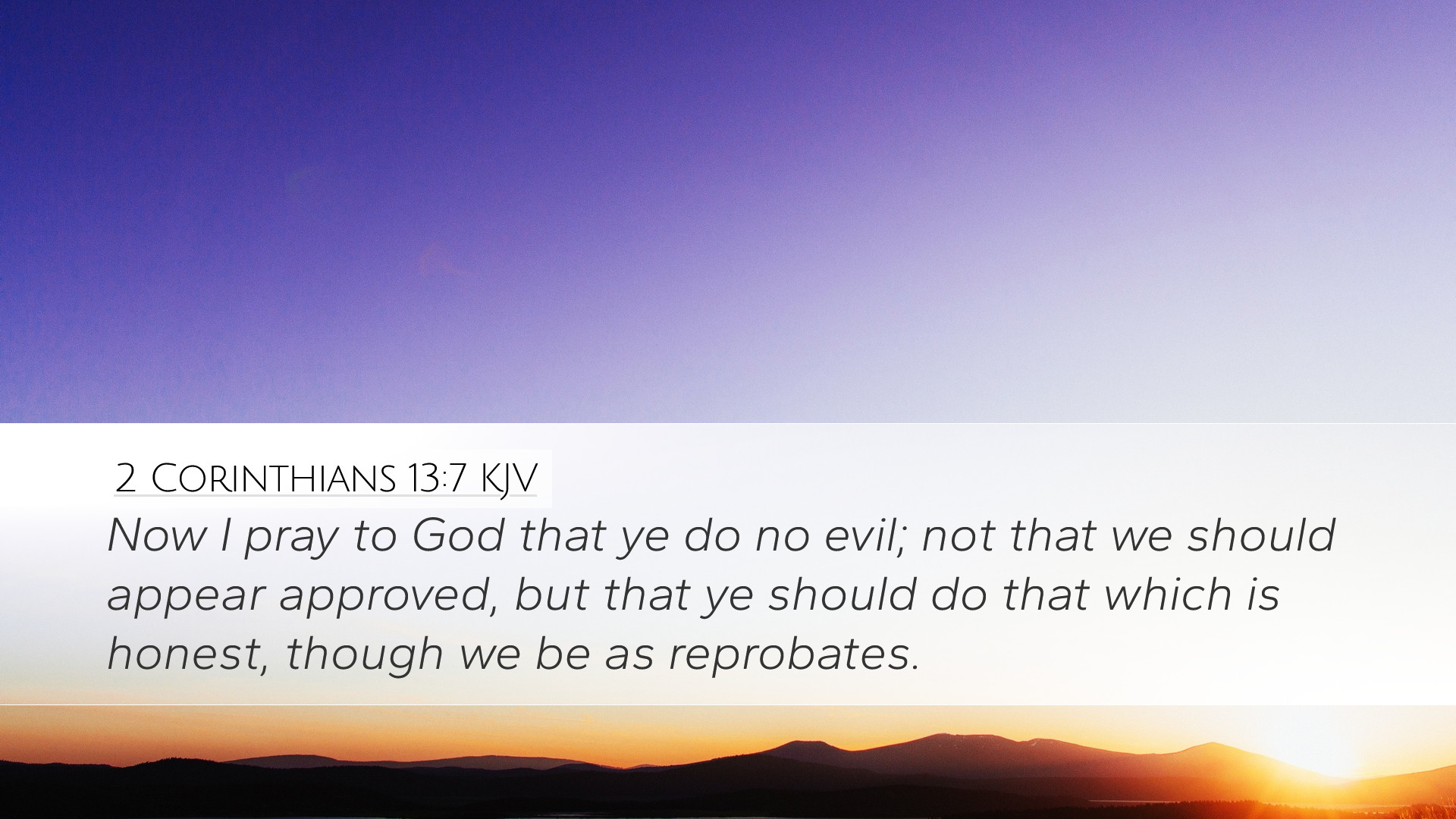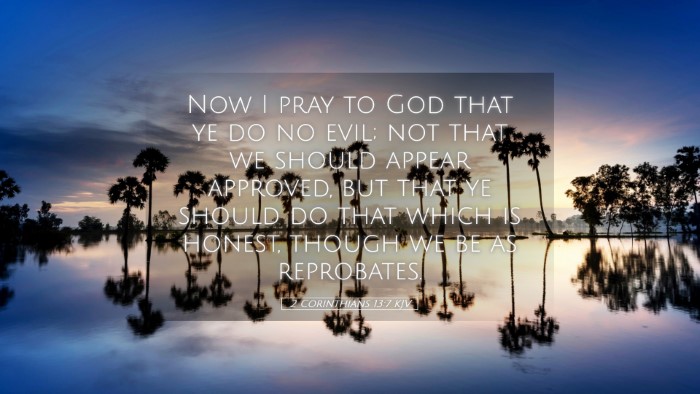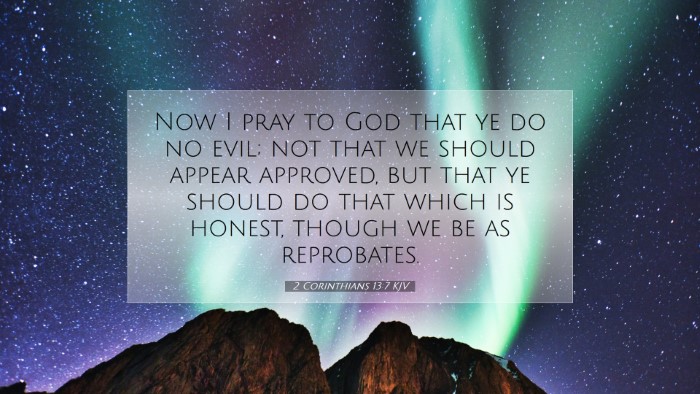Old Testament
Genesis Exodus Leviticus Numbers Deuteronomy Joshua Judges Ruth 1 Samuel 2 Samuel 1 Kings 2 Kings 1 Chronicles 2 Chronicles Ezra Nehemiah Esther Job Psalms Proverbs Ecclesiastes Song of Solomon Isaiah Jeremiah Lamentations Ezekiel Daniel Hosea Joel Amos Obadiah Jonah Micah Nahum Habakkuk Zephaniah Haggai Zechariah Malachi2 Corinthians 13:7
2 Corinthians 13:7 KJV
Now I pray to God that ye do no evil; not that we should appear approved, but that ye should do that which is honest, though we be as reprobates.
2 Corinthians 13:7 Bible Commentary
2 Corinthians 13:7 - Commentary Summary
Scripture: "But we pray to God that you do no evil, not that we should appear approved, but that you should do what is honest, though we may seem disqualified."
Introduction
In this closing chapter of his second letter to the Corinthians, Paul addresses various issues within the church, emphasizing integrity and authenticity among believers. Commentators such as Matthew Henry, Albert Barnes, and Adam Clarke offer profound insights into this verse, shedding light on its implications for personal and communal faith.
Exegesis and Context
The immediate context of 2 Corinthians 13 is Paul’s final exhortation to the Corinthian church before his impending visit. In this setting, he underscores the importance of personal conduct and spiritual honesty, which transcends mere appearances of righteousness.
Insights from Matthew Henry
Matthew Henry emphasizes that the Apostle Paul, in his prayer, seeks the ultimate good of the Corinthians. His intent is not to vindicate his own authority but to appeal to their moral integrity:
- Prayer for Righteousness: Paul prays that the Corinthians would do no evil, advocating for a sincere approach to their faith.
- True Approval: Henry notes that true approval before God is not reliant on human opinion. Instead, it factors upon living a life of honesty and obedience to God's commands.
Insights from Albert Barnes
Albert Barnes underscores the apostolic concern for the conduct of believers, highlighting key elements of this verse:
- Apostolic Concern: Barnes outlines that the essence of Paul's prayer is for the Corinthians to act righteously, emphasizing that his request is motivated by love rather than a defense of his authority.
- Perception vs. Reality: He contrasts the 'appearance' of being approved by men with the vital importance of living truthfully before God, suggesting that the perception of being disqualified does not diminish one's standing if they are living in obedience.
Insights from Adam Clarke
Adam Clarke provides a deep theological reflection on the significance of Paul's message:
- The Role of Prayer: Clarke elaborates on the necessity of prayer in promoting righteousness, recognizing it as a divine instrument that influences the hearts of the congregation.
- Integrity Over Reputation: He stresses that it is better to be perceived as disqualified by those who do not understand spiritual matters than to compromise one's integrity in the sight of God.
Theological Implications
The theological insights drawn from this verse reflect the broader narrative of Christian integrity:
- Authenticity in Faith: The emphasis on doing what is honest calls believers to reflect their inner character through their outer actions.
- God’s Perspective: The verse encourages a mindset that prioritizes divine judgment over human approval, reminding believers that true validation comes from God alone.
Practical Applications
For pastors, students, and scholars, this passage yields practical applications:
- Encouragement in Ministry: Ministers can find encouragement in pursuing integrity, even when their authority may be questioned or misunderstood.
- Authentic Community: Building a community that values honesty and integrity can help foster a trustful and empowering environment for all members.
- Personal Reflection: Individuals are urged to evaluate their actions and motivations, ensuring they align with Biblical truths rather than societal pressures.
Conclusion
In summary, 2 Corinthians 13:7 provides a profound exhortation on the nature of true righteousness and the importance of seeking God's approval above all. The insights from Matthew Henry, Albert Barnes, and Adam Clarke serve to remind us of the high calling believers carry in demonstrating honesty and integrity within their lives and communities. As we reflect on this text, may we be inspired to pursue righteousness wholeheartedly, empowered by prayer and the Holy Spirit.


